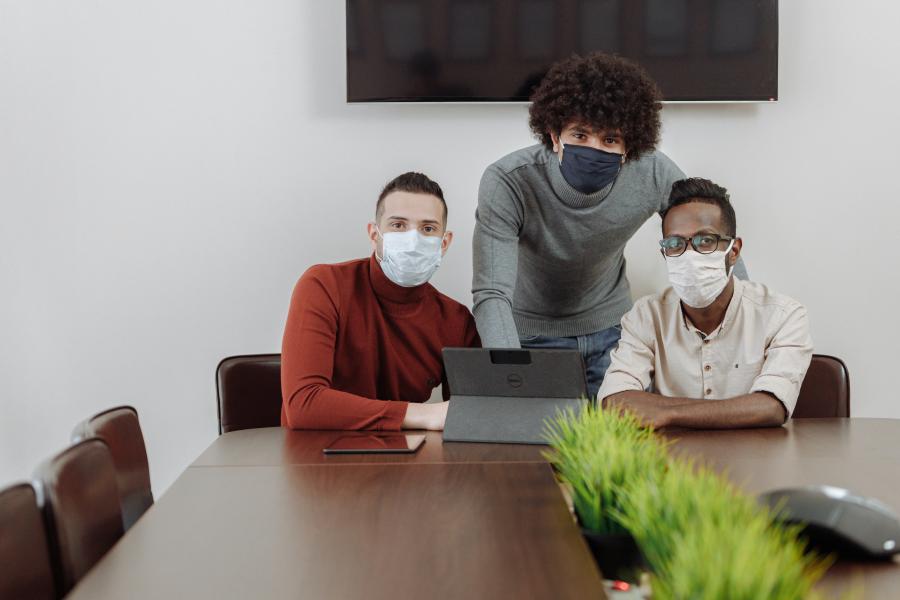How Common are Asymptomatic COVID-19 Infections?
Since the beginning of the COVID-19 pandemic we have been warned about asymptomatic infections. An asymptomatic infection is when someone is infected with COVID-19 but does not develop any symptoms (for example coughing or fever). In these cases people do not feel sick at all but can still spread the virus. The problem is that people with asymptomatic infections can spread the virus to many people at once – if they don’t feel sick they still might go out and spend time around people. Concerns about asymptomatic infections have led health officials to recommend masking and even quarantine at earlier points in the pandemic. But how common are asymptomatic infections? Are they really a cause for concern? A new study provides some answers.
The study (1) looked at data from 1,574 people from 30 locations around the US. The researchers tested each study participant for COVID-19 antibodies. They also gave participants a questionnaire that asked them about their history of COVID-19 infections among other questions. These data were collected from August 2021 to May 2022.
The researchers used a clever approach to estimate how many people have asymptomatic COVID-19 infections. They looked at how many people who had a previous COVID-19 infection actually knew that they had one. First, they identified which people had a previous COVID-19 infection by looking at their COVID-19 antibodies. There are two types of COVID-19 antibodies. First there are anti-S antibodies that fight the spiked part of the virus. Then there are anti-nucleocapsid antibodies (anti-N for short) which fight the main body of the virus. Anti-S antibodies are created by both the COVID-19 vaccines and from previous COVID-19 infection. However, anti-N antibodies only come from previous COVID-19 infection. Therefore, the researchers could tell that anyone who has anti-N antibodies had a previous COVID-19 infection.
After identifying all the study participants who had a COVID-19 infection, the researchers then asked them if they ever had COVID-19 before. Even though all of these people actually had COVID-19, 44% of them said that they never had it. This suggests that these people, who had COVID-19 but believe that they didn’t, probably did not have symptoms – meaning they had asymptomatic infections. Of course, it is important to conduct more studies like this to hone in on the exact rate of asymptomatic infections. However, this study suggests that as many as 2 out of every 5 people who get COVID-19 will not show symptoms.
Currently the best way to protect yourself against COVID-19 is through vaccination. The COVID-19 vaccines have been authorized by the Food and Drug Administration for children as young as 6 MONTHS old. The vaccines have been tested and found to be safe and effective for people of all ages (2,3). You can get COVID-19 vaccines at most pharmacies and doctor’s offices. The COVID-19 vaccines are also free to all. For a list of places in Bridgeport to get a COVID-19 vaccine, visit COVID-19 Vaccination Information. It is also a good idea to wear a high-quality mask in large gatherings of people (4). The most protective masks are N95 mask, which are now inexpensive and can easily found online, such as here.
Definitions
Antibodies – Antibodies are something that your body’s immune system makes to fight off a virus. They cover the virus so that it cannot multiply or cause any more damage to your body.
Asymptomatic Infection – An asymptomatic infection is when someone catches a virus but doesn’t develop symptoms. People with asymptomatic infections can still spread the virus even though they do not feel sick.
Sources
- Akinbami, L. J., Kruszon-Moran, D., Wang, C., Storandt, R.J., Clark, J., Riddles, M.K., Mohadjer, L.K. (2022). SARS-CoV-2 Serology and Self-Reported Infection Among Adults—National Health and Nutrition Examination Survey, United States, August 2021–May 2022. MMWR. Morbidity and Mortality Weekly Report, 71.
- Graña, C., Ghosn, L., Evrenoglou, T., Jarde, A., Minozzi, S., Bergman, H., ... & Boutron, I. (2022). Efficacy and safety of COVID-19 vaccines. Cochrane Database of Systematic Reviews, (12).
- Walter, E. B., Talaat, K. R., Sabharwal, C., Gurtman, A., Lockhart, S., Paulsen, G. C., ... & Gruber, W. C. (2022). Evaluation of the BNT162b2 Covid-19 vaccine in children 5 to 11 years of age. New England Journal of Medicine, 386(1), 35-46.
- ACGIH. COVID-19: Workers need respirators. Available from: https://www.acgih.org/covid-19-fact-sheet-worker-resp/

